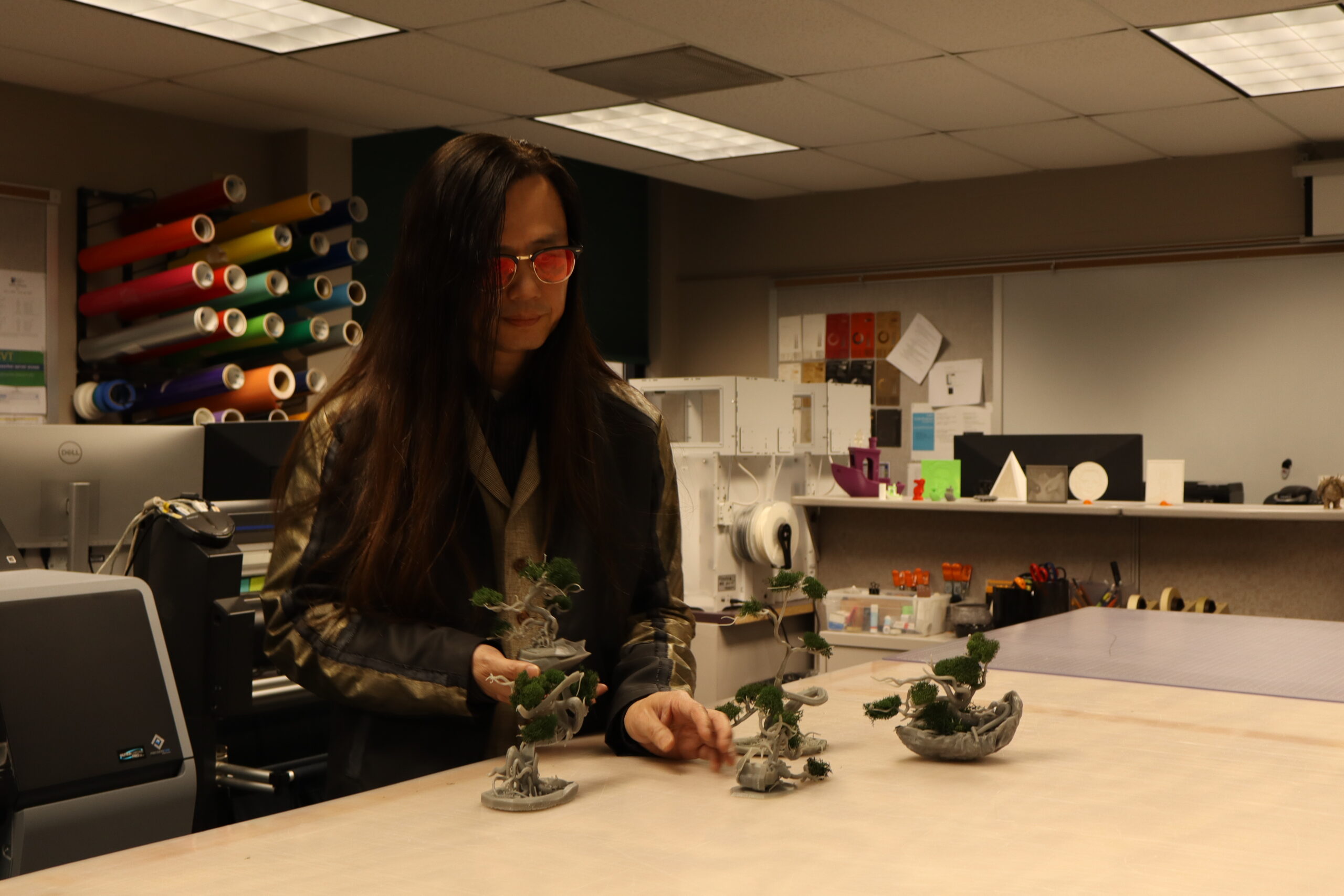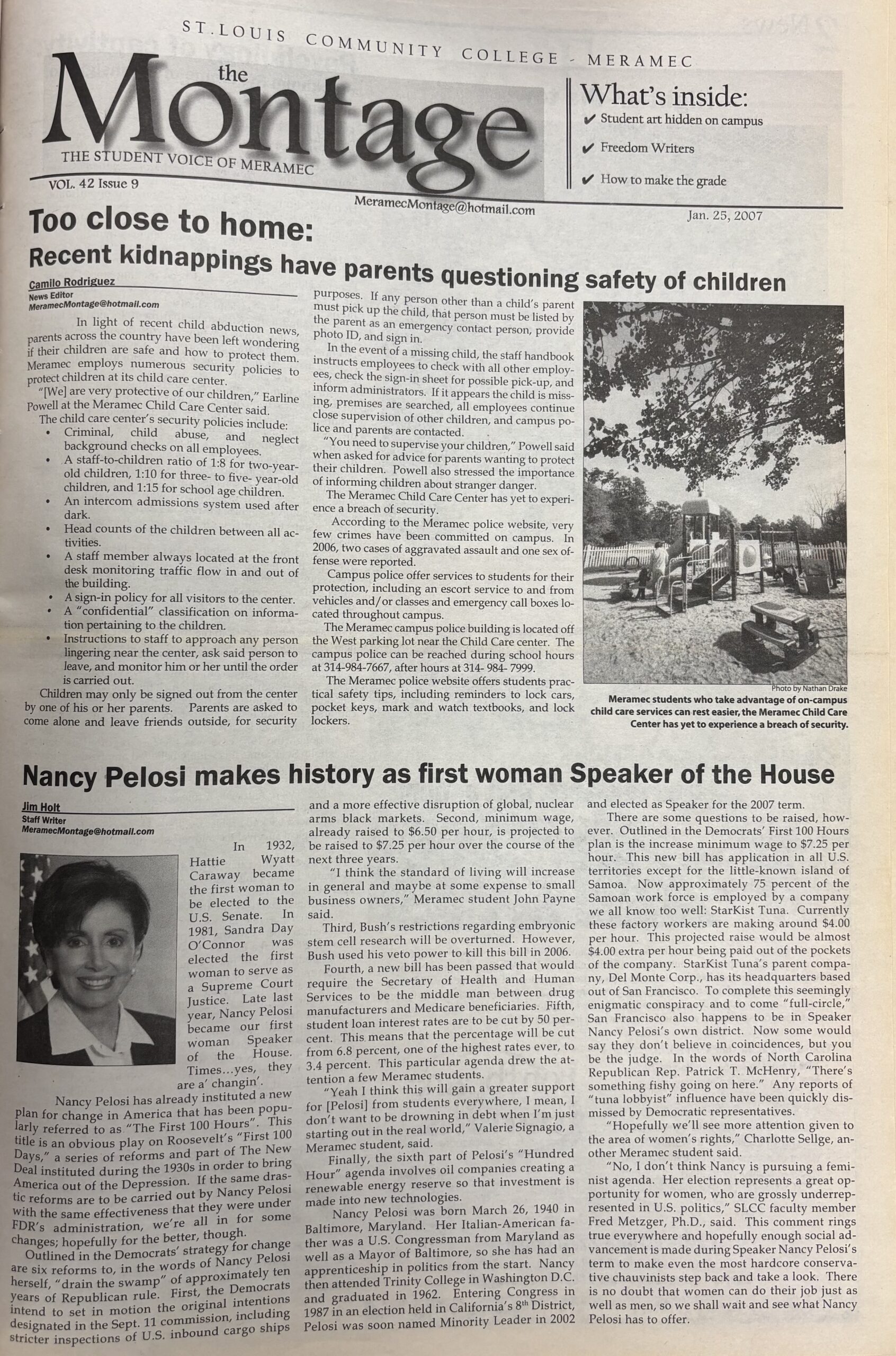Dr. Shamim Ansari, English professor, incorporates LGBTQ literature in each of her classes, spearheading a discussion on what gender really means:
LAUREN JOHNS ART & LIFE EDITOR
Dr. Ansari was born in India but immigrated to Germany at 20 for her bachelor’s and master’s in English. From there, she landed in the United States, receiving her doctorate in English at the University of Denver in Colorado. “I’m half German, half Asian Indian. I speak German, Hindi, Urdu and English,” said Ansari. “I have a brother, two sisters and a few aunts and uncles that all live in Germany with my mother. My dad remains in India.” Growing up in India, Ansari’s mother was Christian and her dad was a Muslim. Despite this, religion was a scarcity in their household. They never attended church or learned to pray. Even without the structure of religion, Indian society abides by a patriarchal system, she said. “When I was a teenager, my parents seperated and my dad had to assume both gender roles to support my siblings and I,” said Ansari. “He had a very authoritative manner. As a girl in India, I couldn’t interact with boys and I couldn’t leave my house without supervision. I attended school but I lived a very domesticated life.” Outside of school, her favorite pastime involved reading and later, dancing. Two of her favorite authors were Victor Hugo and Simone de Beauvoir who both wrote extensively about gender roles and how one come into them. “I can recall loving a novel called ‘The Second Sex,’ by Simone de Beauvoir, a french author,” said Ansari. “It shaped my understanding of gender today. ‘You are not born a woman, you are made a woman.’” Her love for international literature has remained steadfast. “Today, I have so many Indian books at home that I’ll bet I have more in my house than [than there are] anywhere else in Saint Louis,” said Ansari. When she was working toward her doctorate degree, she had to select the author by which she felt most empowered. She zoned in on Willa Cather for her expressive depictions of westward expansion and gender manifestations in ‘O Pioneers.’ “This is one of the required texts for my Women’s Studies online class,” said Ansari. “She creates strong, independent female characters, almost masculine. They are all on the front lines of the action. She also paints a beautiful picture of the West. I love nature. If anyone asked me which God I believed in, I’d say, ‘nature is my god.’ It explains how we are t h e way we are.” Pertaining to nature, Ansari said she aspires to visit every national and state park in America. “Out of the three [continents with countries where I reside], the United States is the most advanced with the gender movement,” said Ansari. “In particular, I’ve encouraged transgender students and anyone else who defies the norm to write and speak about their experiences. It’s imperative that educators know how to teach and understand gender variant students. I’m driven to gain competency.” In her English Composition classes, she requires literature that pertains to gender studies, alongside the regular text. They read “Composing Gender” by Rachael Groner and John F. O’ Hara. “To sum it up: this book argues that gender is not binary. Gender is instead constructed within a culture and based on society’s terms,” said Ansari. “For instance, boys like the color blue and girls like pink. Boys and girls can only play with their respective toys. Overall, boys cannot do what girls do and vice versa.” In addition, Ansari also requests that her students read the graphic memoir, “Fun Home,” by Alison Bechdel (now a popular Broadway Musical). The book goes into depth about a young girl’s relationship to her gay father while she discovers her own sexuality. Ansari even discusses this gender variation concept with her family. In particular, her mother, whom she visits yearly. “I’ve never brought up the concept with my dad; I don’t see him as often,” said Ansari. “But my mother and siblings are very tolerant and welcoming toward this topic, especially since we have a few homosexual family members: an aunt and a nephew.” Her patience and welcoming nature has a positive correlation to her students and their success rates, said Meramec Student Amelia Humphrey. “She’s honestly one of the kindest professors out there,” said Humphrey, a sophomore. “I was going through a really hard time a few weeks ago due to personal reasons and she was the only one who gave me extra time and worked with me through my troubles. She even corrected my essays so I could do better.”











